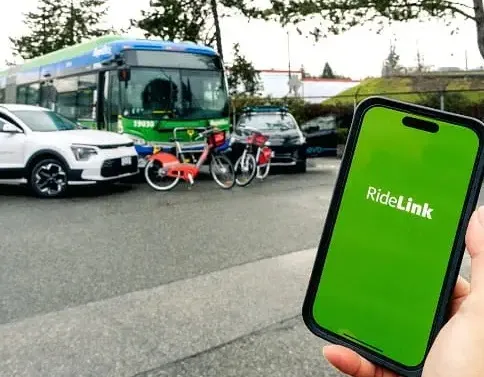
Residents of the Metro Vancouver area in Canada have the chance to participate in a pilot programme for a proposed multi-modal app called RideLink.
Bike-share operator Mobi, regional public transport authority TransLink and car-share operators Modo and Evo have launched the RideLink Mobile App pilot. It integrates transit, carshare and bikeshare, putting all the travel options in one place.
The 12-month pilot programme, which started in February allows residents to use their reloadable fare card, called Compass Card, for easy access to all the services.
The pilot will test the app's functionality and user experience, according to the companies and TransLink, which is responsible for all public transport in the Metro Vancouver region.
Mobi is the trade name of Vancouver Bike Share system and is administered by the city of Vancouver and owned and operated by CycleHop - a bicycle sharing platform and mobility company that operates bike-share in 15 cities in North America.
Modo is a member-owned carshare operator based in the Canadian province of British Columbia and was the first carshare co-op in North America and reportedly the first carshare in the English-speaking world. Modo amalgamated with the Victoria Carshare Co-op in the city of Victoria, on Vancouver Island, in 2015. As of last year, Modo had more than 30,000 individual and business members and a fleet of around 1,000 vehicles,
Meanwhile, Evo a carsharing service in Greater Vancouver and Victoria, was created by[the not-for-profit British Columbia Automobile Association. BCAA is a member of the Canadian Automobile Association whose members provide roadside assistance, auto touring and leisure travel services, insurance services and member discount programmes within their service territories. BCAA offers exclusively Toyota Prius Hybrid vehicles with roof-top bike racks and features one-way point-to-point rentals.







